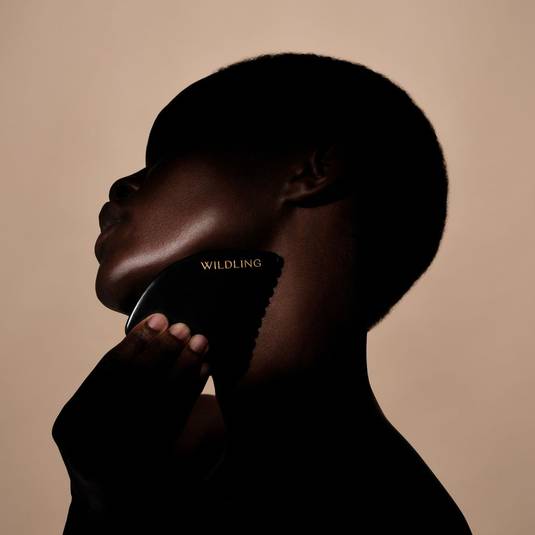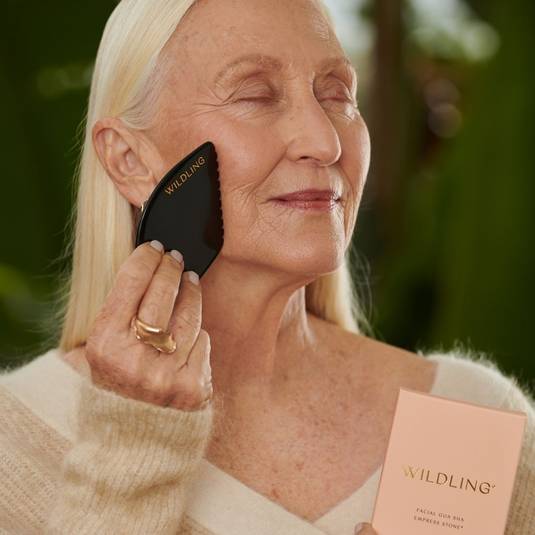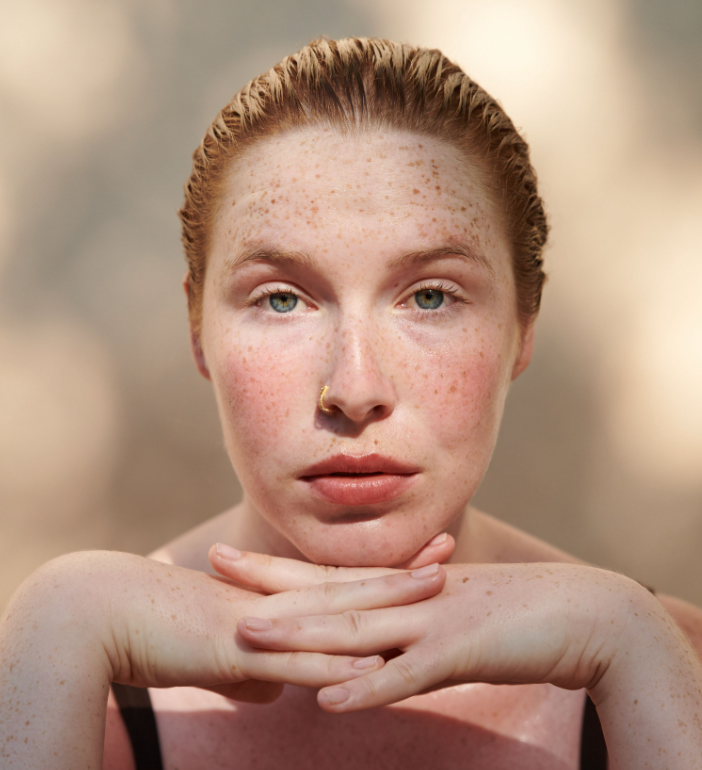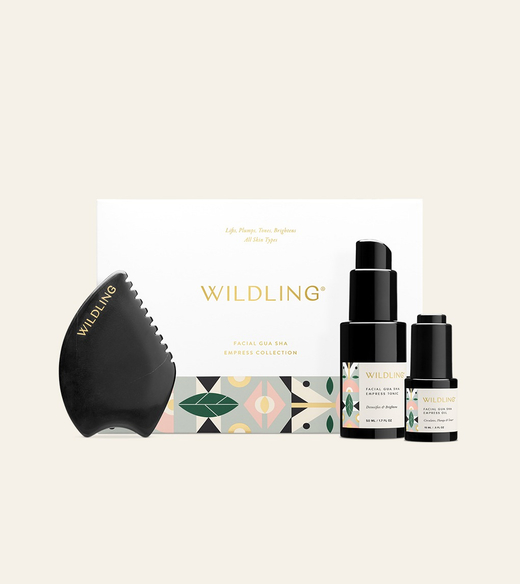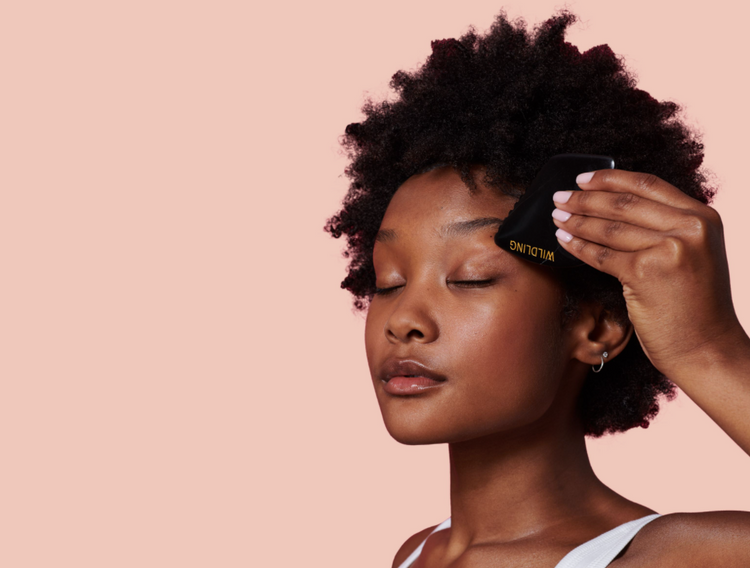There’s no doubt that holistic, anti-aging treatments are on the upswing. Facial reflexology, gua sha, facial acupuncture, and massage are now being touted as effective—and enjoyable—alternatives to injectables and fillers.
Gianna de la Torre is a practicing acupuncturist in Los Angeles, California, who specializes in facial acupuncture. She’s also one of our three founders, alongside gua sha expert Britta Plug and studied herbalist and product formulator extraordinaire, Jill Munson. We caught up with de la Torre and asked her all of our burning questions about facial acupuncture and how it can change the skin (especially when paired with an at-home gua sha practice). Here’s everything you need to know:
Q. What can you expect during a facial acupuncture appointment?
A. If you’ve had acupuncture before, facial acupuncture isn’t all that different. I start with a tongue and pulse diagnosis, and I’m always treating the whole body even when we’re focusing on the face and skin. It’s a common misconception that facial acupuncture means that the needles are going only on your face. That shouldn’t be the case. I use body points too, as there are several aspects to the face that relate to different organs. In facial acupuncture, we are balancing the body holistically and using the face as entry point.
Q. How long does it take to see results?
A. Facial acupuncture sessions with me are 90 minutes each. I recommend that patients come in one to two times a week for six to eight weeks—that’s enough to invigorate the chi and blood in your face and to see and feel noticeable change. From there, monthly tune ups are sufficient to maintain the results, especially if you repeat the six to eight week cycle about once a year. Keeping up with at-home facial gua sha practice also helps maintain and extend the results.
Q. What are the benefits of facial acupuncture?
A. Most patients come to facial acupuncture to alleviate signs of aging in a more natural way. But you can treat so much through the face—joint pain, allergies, organ function, fertility, and more. When I do facial acupuncture for aging and skin health, I can also treat other ailments at the same time. I think it's a common misconception that they are separate. They're not!
When we focus specifically on the skin, the benefits of facial acupuncture are liftedness, brighter skin, a decrease in breakouts and acne, clearing of hyperpigmentation, and firming of the skin.
Q. Can I do facial acupuncture instead of Botox?
A. The short answer is yes, absolutely, and I encourage it. But it’s important to understand that facial acupuncture and Botox work in opposite ways. Botox freezes the muscles around the injection site, which does relax the area and the skin around it resulting in fewer wrinkles and creasing. Botox also limits the flow of lymph, blood, and chi to that area. Facial acupuncture works by restoring the flow of chi to the tissues.
Many of my clients don’t want to stop using Botox, and I honor that. Since acupuncture can cause the Botox to stop working (!), I recommend doing a few facial acupuncture sessions once the Botox wears off, but before you get your next injections. It allows all the areas that have been dormant to wake up a little bit, and if you go back for more injections in the same area, you’ll be better off because that part of your face is being reinvigorated in between. Sometimes clients come off of Botox completely after a few facial acupuncture sessions, others have been able to decrease the amount of injectables they use with this strategy.
Q. Is facial acupuncture relatively new, or has accessing the face during acupuncture always been a part of traditional acupuncture practice?
A. Facial acupuncture has always been part of a holistic acupuncture practice and treatment, because there are so many points on the face and you can treat the face in order to effect change in other parts of the body. Cosmetic acupuncture is certainly something that has started to trend in our modern times because people are interested in natural alternatives to injectables. I’ve come to it because I see this almost-epidemic of toxic beauty treatments and I want to provide a solution that’s not only natural, but effective. I want to help patients find natural beauty from an empowered and self-loving place.
Q. What do clients typically say about how they feel after a facial acupuncture session?
A. It’s interesting—they walk out in a haze of bliss. Acupuncture has a specific mellow kind of euphoria that many clients say they feel after a session. Everybody’s different. Some say they feel they look ten years younger, and not just because of the work on the skin. There is an energetic lifting of the weight of life. All the years, days, weeks of pressure and stress we work to clear, because that plays into how the face looks and feels. When we address stress and pressure, facial wrinkles actually become less defined and the skin feels brighter. You’ll feel and see boost in blood and chi, the face looks more taut and perked up. I can’t emphasize enough that it’s important your practitioner addresses the entire body during your facial acupuncture session and not just your face, neck, and upper back. That’s something to look out for. If you’re getting needles in your face only, you probably want to find another practitioner.
